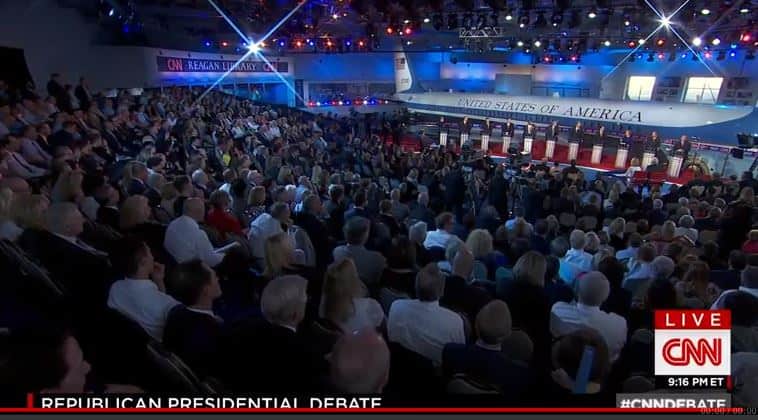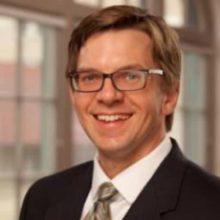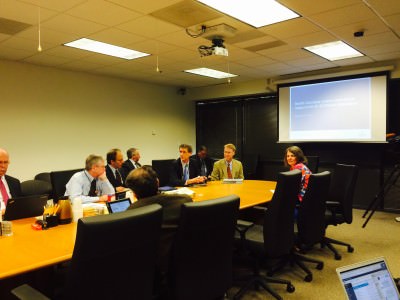
By Todd Brantley, covering the 8pm debate
It was a crowded stage for the 8:00pm main event of this evening’s GOP presidential debate, and Donald Trump was dead center, sometimes more as a topic than a participant.
Trump and the ten other candidates — Jeb Bush, Scott Walker, Ben Carson, Ted Cruz, Marco Rubio, Mike Huckabee, Rand Paul, John Kasich, Chris Christie, and Carly Fiorina — sparred on domestic and international issues ranging from the spread of ISIS to the minimum wage to the legalization of marijuana.
But in a grueling three-hour long debate that was at times boisterous and at other times humorous, there was no discussion of federal education policy or the candidates’ own education platforms.
Tonight’s debate did not include a single question on education policy from the CNN moderators.
During the first debate, Senator Marco Rubio and former Florida Governor Jeb Bush engaged in an exchange on the issue of Common Core. If the Bush-Rubio exchange qualifies as “some” discussion of education in the first debate, tonight’s included none.
Other than as an aside or cloaked in a jab at another candidate, the issue of education was absent in the marathon debate that at times felt like it touched on everything else, including potential secret service code names.
We’ll see if that changes at the next Republican presidential debate on October 28th at the University of Colorado at Boulder. That debate will be broadcast on CNBC.
The first Democratic presidential debate takes place October 13th in Las Vegas and will be broadcast on CNN.
By Alex Granados, covering the 6pm debate
A group of Republican underdogs in the race for president met at the Ronald Reagan Presidential Foundation and Library tonight, each one eager to showcase why he is the right person to lead this nation after Barack Obama.
Rick Santorum, Lindsey Graham, Bobby Jindal, and George Pataki hit the stage for the not-quite-prime-time 6 p.m. debate broadcast by CNN, while the top 11 candidates battled at 8 p.m.
The big draw in the GOP 2016 presidential race is business icon and former reality-TV star Donald Trump. But while he was not physically on stage at 6, his presence was very much felt by the candidates. The very first question, in fact, was to Jindal, asking him why he publicly attacked Trump earlier this month.
Jindal was unapologetic.
“He’s not a conservative. He is not a liberal. He’s not a Democrat. He’s not a Republican. He’s not an Independent. He believes in Donald Trump,” Jindal said.
But here at EducationNC, we cover — you guessed it — education. So, what did the candidates have to say about schools in the United States?
Nothing.
Hopefully the 8 p.m. crowd will do better.



